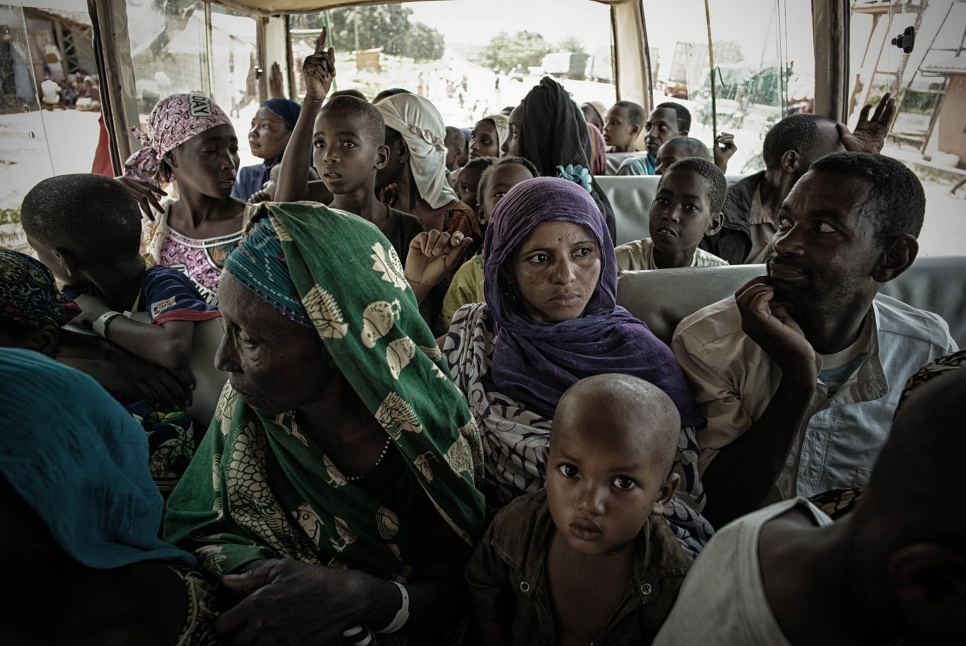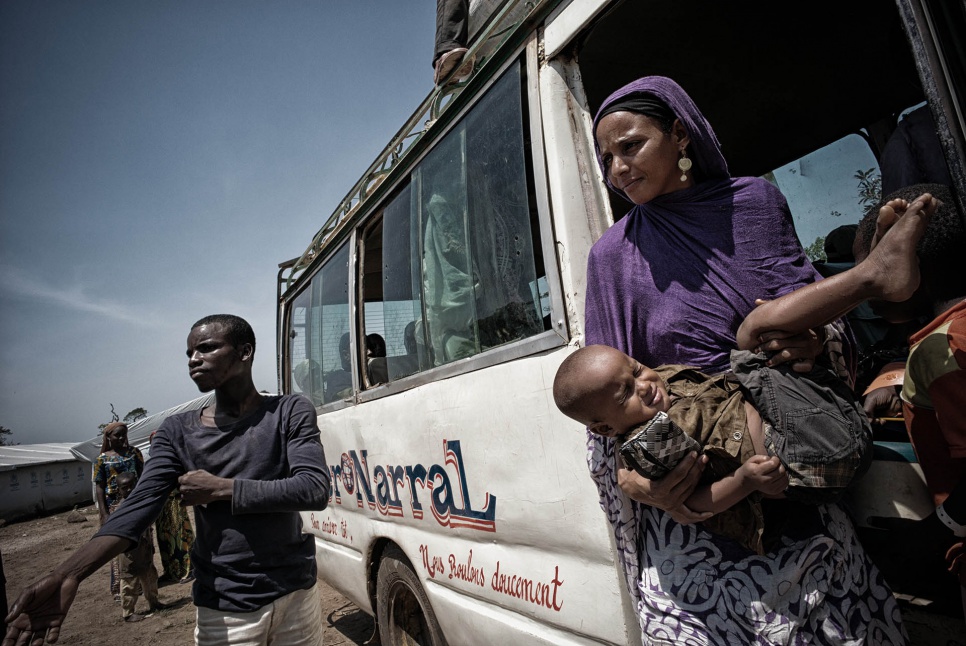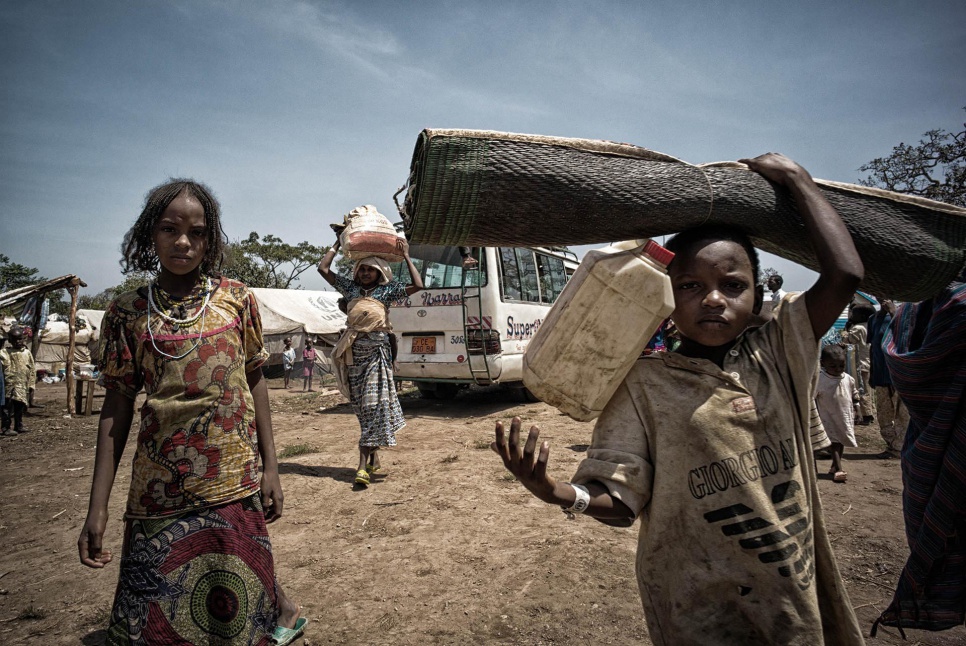A Family Made Whole Again
Idris was separated from his wife and sons as they fled the fighting in Central African Republic. Eight agonizing months later, they reunite.
Idris greets his son at a site for refugees in Cameroon.
© UNHCR/Olivier Laban-Mattei
After eight months of anguish, Idris Ali is basking in joy. Three days ago he learned that his first wife and two sons would soon join him in eastern Cameroon, where he took refuge from atrocities back home in the Central African Republic. For the longest time, Idris had not even known if they were still alive.
The 35-year-old husband and father has imagined this moment many times. He has tried to prepare himself mentally. Still, he feels an urge to cry as he watches his wife and children enter the community shelter here in Gado-Badzere, soon after they arrived by bus from a transit site near the border.
Idris swoops the kids up his arms. "My God saved me and my family!" he says triumphantly.
"Six of my relatives died that day, savagely murdered," he says. Now it is time to move on, he adds. "I want to rebuild my life."
Idris smells them, licks their cheeks and kisses them all over, as if to make sure the situation is real. Reassured, he turns and casts a grateful glance at his wife, Hamina, 28. Looking more closely, he notices that the boys are wearing plastic bracelets with the UNHCR logo.
"Dad had his watch stolen and has been wearing the same clothes for eight months, whereas you, lucky devils, have jewellery on yours wrists!" he says, and the entire family bursts into laughter.
Such reunions happen with some frequency in Gado, but not often enough. This family is a particularly lucky one.
"I lost track of them eight months ago," Idris recalls. "While fleeing our country, we were assaulted by anti-balaka" – Christian militiamen seeking revenge on Muslims. Idris cuts through the air with his hands to describe how they beat him with a massive wooden pestle. Now he can barely use his left hand.
"Six of my relatives died that day, savagely murdered," he says. "But God heard my prayers." It took him three months to reach Cameroon on foot, often hiding in the bush. Now it is time to move on, he says. "I want to rebuild my life."

Idris negotiates with a woman who has moved into an adjacent shelter without authorization. He had hoped that his wife and sons, who just arrived from CAR, could settle there. © UNHCR/Olivier Laban-Mattei
As if hearing his plea, an aid worker shows up at Idris's shelter early the next morning. "Now that your first wife and your kids are here, we will find you a second unit," says Alain Kingnjock, a member of UNHCR's site management team, inviting Idris to join him. The entire family follows them: Idris's first wife, their two sons and his second wife, 18-year-old Adjara.
"We try, as much as possible, to keep families together and find shelters for them that are close to each other," explains Kingnjock. "In the present case, we need two. One for each wife."
"This is only temporary," he says. "Soon we will be going back to our country, back to our lives."
The chosen shelter is the one closest to the shelter where Idris and Adjara have been living. But there is an issue. Another woman has been living there for several days, building a cosy home for her children, and she squarely refuses to leave. As the negotiations grow tense, a curious crowd gathers around. The woman, tired of arguing, declares the discussion over by walking away. She sits down to crush the manioc leaves in her mortar, pounding and sighing loudly with each blow.

Idris and his wives, Adjara (left) and Hamina, and two sons look at a shelter under construction in Gado-Badzere, Cameroon. © UNHCR/Olivier Laban-Mattei
And then a deal is struck: Idris agrees to move his family to a different shelter. He knows building a new one won't be easy with his left hand in such pain, but he promises his wives to do his best to prepare them a new home. Led by Kingnjock, the family sets off exploring the site, evaluating other shelters under construction. They finally arrive in front of two circular white tents.
"This is it: our new home," says Idris proudly. Then he adds, "But this is only temporary. Soon we will be going back to our country, back to our lives."



